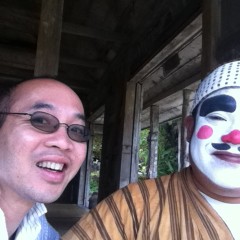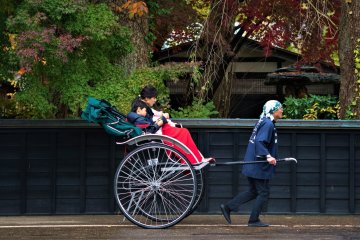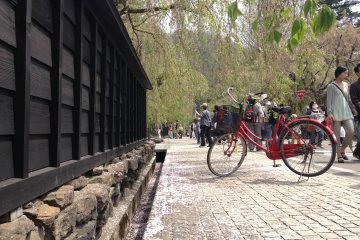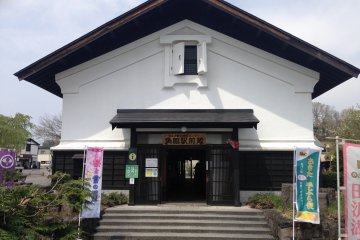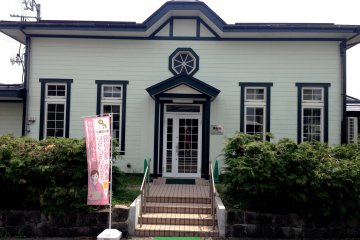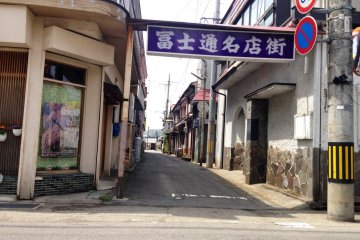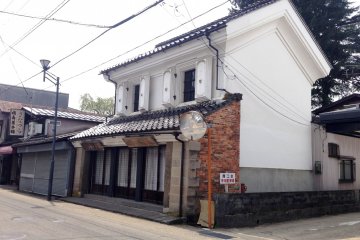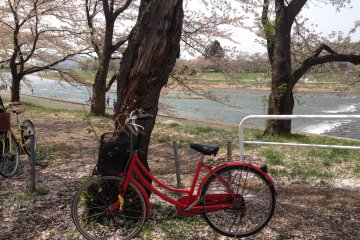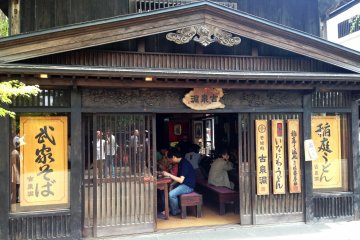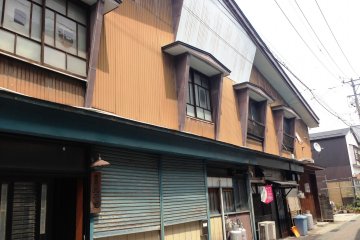Part of the charm of visiting an old town like Kakunodate is to slow down to the pace of life here. When you put off the stresses of urban life and breathe in the mountain air, you can sense the peace and tranquillity of the old houses and gardens that dot this town.
Being a compact place with a mild climate and level, relatively car-free streets arranged in a grid-like pattern, Kakunodate is an ideal place to get around by bicycle for people of all ages and fitness levels. You can rent a bike by the hour, and depending on whether you wish to visit the samurai houses at Uchimachi or take lunch here, you can cover most sights in a day. The bikes themselves won’t win any races. Being old and simple, they are best suited for taking your time in an undemanding manner, which makes them suitable even on a pauper’s budget.
The bicycle shop is in a nondescript '70s building a few minutes’ walk northwest of Kakunodate Railway Station (see the map link on this article). There is little in terms of signage, though the scattering of old bicycles outside will give you a clue. If you can’t find it, the helpful guides in the tourism information office, housed in a restored European-style building can give you a hand.
Most visitors will make their way from the station toward the Hinokinai River. As you approach the riverbanks, you will encounter a mixture of old and new buildings, from chic tea houses and boutiques to old family-owned stores selling everyday items. The beauty of cycling is that you can see things others would miss. A stack of used beer bottles with exotic names on a milk crate outside a bar, or from the corner of my eye, an animal handler with his tiny spider monkey by the side of a gaily decorated festival float on a side street, far from the crowds on high street.
Whether you come here by design or accident, chances are you will ride past Ando’s old miso and soy brewery, a large old red brick building with a mixture of Japanese and European elements. Established in 1853, it usually draws a small crowd, chatting or peering inside the tatami rooms. Closer to the river there is an avenue of samurai residences, giving this town the moniker of “little Kyoto”.
Cycling here is best done in the seasons of spring and autumn. In late April the Cherry blossoms fill the skies above in the tree-lined avenues along the river and the old town. While the Kakunodate Cherry Blossom Festival draws crowds from Tokyo and abroad, the wide streets from the train station mean that there is plenty of room for cyclists and pedestrians to share. In autumn come here to view the changing of the colors, with various shades of red, orange, and yellow giving the streets a soft glow. Summer is also a time of festivals and fireworks in many parts of this rural prefecture, which is particularly spectacular with a lakeside and mountain backdrop. In winter the deep snow will make cycling difficult and some of the shops may be closed, as locals and travelers alike head for some of the best ski runs in the world.
Kakunodate is just over three hours from Tokyo by the Akita Shinkansen bullet train, so you can easily come here as a day trip. Better still, spend a few days in this region, where you can relax at the Nyuto Onsen or go cycling around Lake Tawazako.


